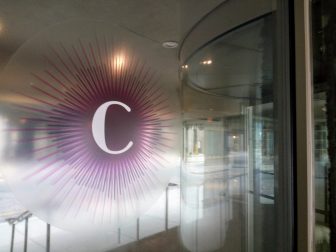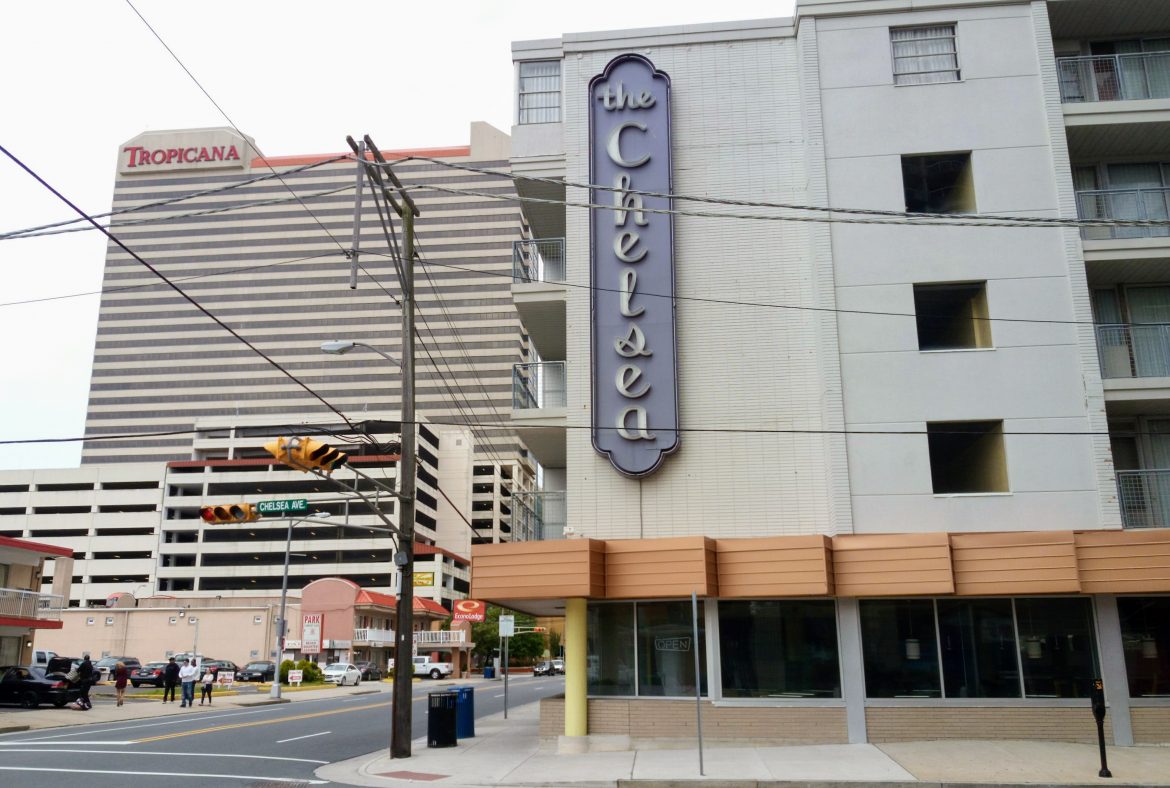Billionaire investor Carl Icahn, a perennial on the merry-go-round that is Atlantic City real estate, last week acquired the mortgage to the Chelsea hotel, less than three months after selling the Taj Mahal casino.
The Chelsea, billed as “Atlantic City’s only true boutique hotel,” shut its doors in December, ostensibly for the winter season. But the phone line to the hotel was cut off in recent weeks and a small tax lien was filed on part of the property last month.
The Chelsea is next door to Icahn’s Tropicana. A walkway between the properties, for instance, would create a combined property that’s closer in terms of room- and meeting-space-size to marina-based Harrah’s. Atlantic County property records show the Icahn investment vehicle that acquired the Chelsea’s mortgage is named IEP Morris – maybe for Morris Ave, which divides the Tropicana from the Chelsea. On the other hand, Icahn, who has sat on the shuttered Trump Plaza for more than two years, is not opposed to leaving Boardwalk properties empty. Officials at Icahn Enterprises were not available to comment immediately on his plans for the hotel.
What happened to the Chelsea? Why did it close, almost 10 years to the day from its purchase by one of South Jersey’s most lauded hotel owners?
 Curtis Bashaw – the man behind the reinvention of Cape May’s Congress Hall – and Finn Wentworth’s Normandy Real Estate Partners borrowed $76 million in early 2007 to buy and refurbish two Boardwalk-block properties on Chelsea Avenue, property documents show. That was a lot of debt, but it was an ownership team with experience – and political clout. Wentworth would later sit on the Christie-appointed Hanson Commission on gaming and is now a board member of the commission’s offshoot, Atlantic City Development Corp. Bashaw had been a former executive director of the Casino Reinvestment Development Authority.
Curtis Bashaw – the man behind the reinvention of Cape May’s Congress Hall – and Finn Wentworth’s Normandy Real Estate Partners borrowed $76 million in early 2007 to buy and refurbish two Boardwalk-block properties on Chelsea Avenue, property documents show. That was a lot of debt, but it was an ownership team with experience – and political clout. Wentworth would later sit on the Christie-appointed Hanson Commission on gaming and is now a board member of the commission’s offshoot, Atlantic City Development Corp. Bashaw had been a former executive director of the Casino Reinvestment Development Authority.
When the Chelsea opened in 2008, the marketing material crowed over its $110 million in renovations. Skeptics noted that was a lot of money to pour into a former Howard Johnson and a former Holiday Inn. Would it be possible to create a hipster mecca in poverty-stricken Atlantic City that would draw a wealthier weekend-getaway crowd?
The team behind the Chelsea hotel touted its millennial-friendly non-gaming amenities: the clover-leaf-shaped saltwater jacuzzi, the retro-chic Teplitzky’s diner and its craft beer (Diving Horse Ale). At least one of the owners, though, pinned hope on legislative efforts that would have allowed gaming at the Chelsea. Bashaw said he envisioned adding table games and slots to the Chelsea’s fifth-floor club. But legislation that would have allowed the Chelsea to add gaming was repeatedly stymied by pressure from the casino lobby. (The Chelsea’s owners hired their own lobbyists, but were apparently outgunned). The owners were also possibly hamstrung by their own connections. The Hanson Commission did not make any recommendations on boutique gaming because two members of the commission had interests that would have been affected by the legislation.
Even leaving aside gambling, the casino giants further pressured the Chelsea by offering cut-price rooms midweek, Bashaw complained. The hotel opened at the start of the country’s deepest and longest recession. And the transport services the Hanson Commission recommended – that could have drawn new visitors to Atlantic City – did not materialize or fizzled out (in the case of the ACES train).
Calls to Bashaw’s Cape Resorts were not returned last week. Calls and an email to Normandy Real Estate’s Gavin Evans, who signed with Bashaw on the original mortgage for the property, were not immediately returned. A lawyer who worked on documents tied to the property on Friday referred questions to Bashaw.
The company behind the Chelsea hotel is not public, so it is hard to gauge the financial success of its mission. Property documents show the original $76 million mortgage was increased slightly in 2010. The purchase price of the properties was around $36.5 million, Bashaw said in an interview in 2007.

This is a huge shame. I really thought the image and marketing of the Chelsea as a non-gambling, Millennial-friendly hotel was a step forward for the city. I’m so sad to hear it had troubles and closed, and partially because of the hope for actually putting gaming in. No millennial I know is into gambling, probably because we have so many student loans that wasting your money is an insane thing to do. Right now, the beer garden is what most excites me, because hanging out and drinking beer on the boardwalk in a lush environment with a fire pit sounds like a way more amazing thing to do than wasting money at stupid table games.
Drinking beer at a fire pit better than gambling ? 🤣🤣🤣
You think Millenials now have more student loans then graduates in last years? Umm, no. It’s all relevant. God, I wish these Millenials would stop talking about how debilitating life is for them. Stand up, stop crying, and take life by the balls. Nothing is going to be handed to you…ever.
The Chelsea hotel was poorly ran by individuals that’s why it went down.
Atlantic City’s key problem is the weather. The beach and boardwalk are great places to be from mid-June through to mid-September but for the rest of the year the weather stinks. It is hard to build a business where you only can make money for one-third of the year. Everyone’s dream of a destination resort falls apart when you figure in the cold, dark, gloomy winter months.